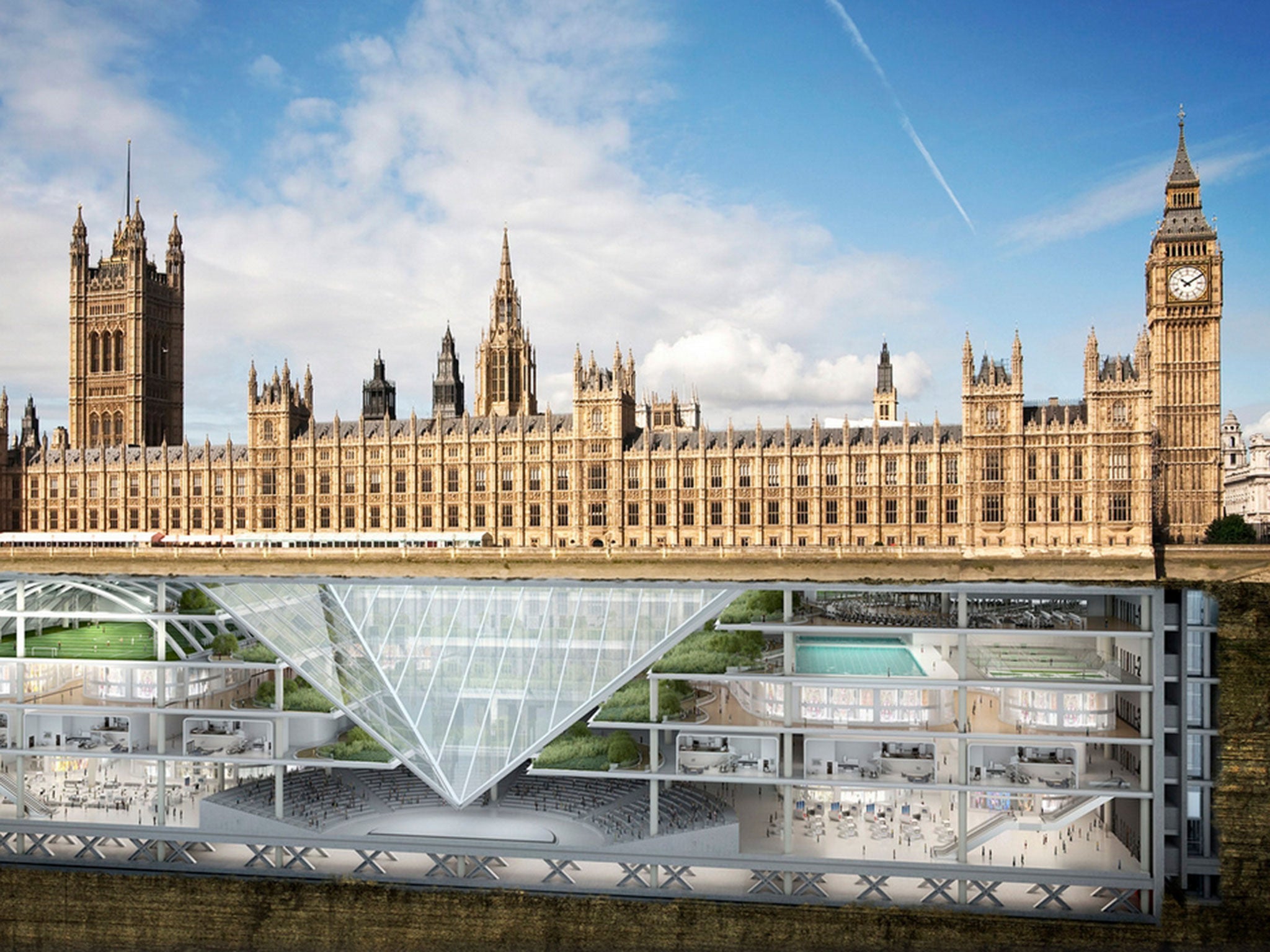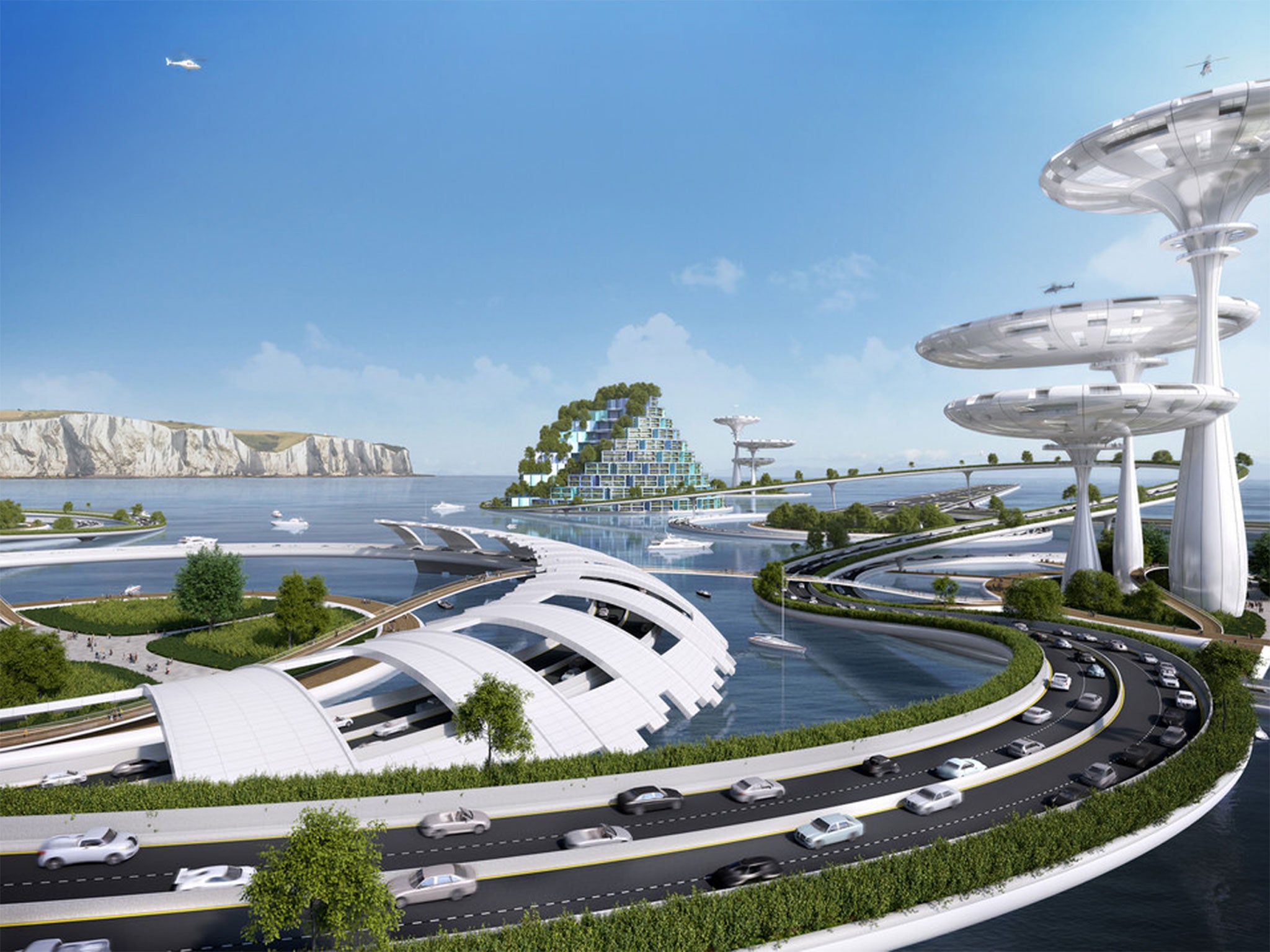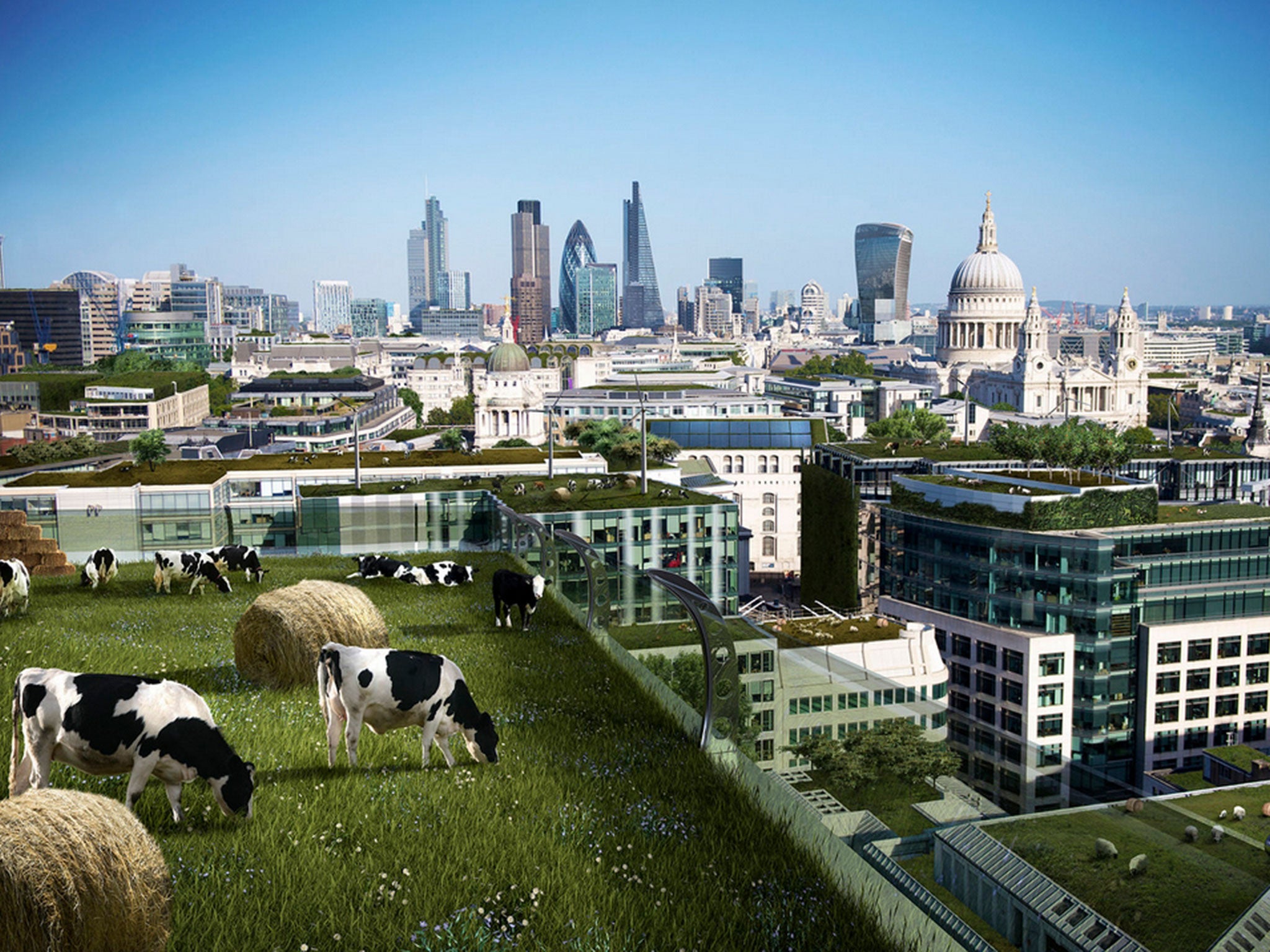From floating cities to high rise farms: Experts outline the future of Britain's architecture
New research proposes the homes and workplaces of future generations

Your support helps us to tell the story
From reproductive rights to climate change to Big Tech, The Independent is on the ground when the story is developing. Whether it's investigating the financials of Elon Musk's pro-Trump PAC or producing our latest documentary, 'The A Word', which shines a light on the American women fighting for reproductive rights, we know how important it is to parse out the facts from the messaging.
At such a critical moment in US history, we need reporters on the ground. Your donation allows us to keep sending journalists to speak to both sides of the story.
The Independent is trusted by Americans across the entire political spectrum. And unlike many other quality news outlets, we choose not to lock Americans out of our reporting and analysis with paywalls. We believe quality journalism should be available to everyone, paid for by those who can afford it.
Your support makes all the difference.Frequently the preserve of wealthy Londoners unable to build outwards, underground basements have often become as notable for the neighbourly disputes they cause as much as the eye-watering prices they command.
But super-deep underground basements are set to be a normal part of the way we live in the future, according to a panel of architectural experts.
Floating cities and high rise farms are also predicted to shape Britain’s landscape for future generations, according to some of the country’s leading experts.
In new research they outline the future form of the places where people will live and work.
Spaceports for travel to the Moon and Mars are also expected to become a reality within the next 100 years, they say.
The advances in engineering and architecture to make this possible will be fuelled by demands from growing populations and response to climate change, according to the expert panel.

It includes award-winning architects Arthur Mamou-Mani and Toby Burgess; urbanist Linda Aitken; and Dr Rhys Morgan, director of engineering and education, the Royal Academy of Engineering.
"We may build downwards, creating additional space through super deep basements, or we may need to create floating conurbations on major rivers or even out to sea. And how we grow and access food, incorporating urban farming into the built environment, as well as harnessing natural energy sources, will result in dramatically different streetscapes and skylines," commented Linda Aitken.
“There is rarely a ‘eureka’ moment,” when it comes to advances, according to Dr Morgan. “Engineering feats which are currently out of reach require time for the pieces to fit together and the minds responsible for developing the ideas to work through all the wrong avenues before achieving what is currently impossible,” he added.

While the future predictions of the experts may be dismissed as little more than fanciful notions by some, almost half of Britons agree that super deep basements will become a reality. But while they are the most likely advance people expect to happen, they are beaten into second place by floating cities when it comes to the one people would most welcome. Having 3D printed homes, rooftop farms, and spaceports to the Moon and Mars make up the rest of the top five architectural advances that people would like to see.
The research is released to mark the launch of an Impossible Engineering series, starting on UKTV’s Yesterday channel at 9pm tonight, which looks at things such as tubular skyscrapers and magnetic levitation trains - once regarded as ahead of their time.
How our landscape could change
- Future MPs will spend much of their time hidden underground, with the House of Commons set above an enormous six storey underground complex. It will be an example of massive basements which will become the norm in Britain in years to come. The underground space will be so vast that it will include gardens, parks, swimming pools, gyms, hotels, and even a football pitch. It would also have places to eat, sleep and work. Above ground, a huge glass pyramid atrium would provide natural light from the courtyard at the Palace of Westminster.
The idea of super deep basements tops the list of predictions thought most likely to come true. Some 41 per cent of Britons think these will become a hidden part of the landscape.
- But when it comes to what people actually want, huge underground spaces are second to sea cities. While more than one in five people want to see enormous basements, one in four would like to see floating cities become a reality.
- A combination of growing populations along with rising sea levels due to climate change could see the creation of floating cities. The reef-like structures would rise above the sea and would be linked to the mainland by huge roads. The notion is seen as the second most likely to become a reality in the decades to come, with one in three (30 per cent) of Britons thinking it is viable.
- And in 100 years, urban dwellers will no longer need to travel out to the country if they want to see cows and sheep. The idea of roof top city farms is the third most likely development over the coming century, with more than a quarter (28 per cent) thinking that the future will see cows and sheep grazing on fields atop skyscrapers. And one in seven (16 per cent) would welcome such a development.
Join our commenting forum
Join thought-provoking conversations, follow other Independent readers and see their replies
Comments